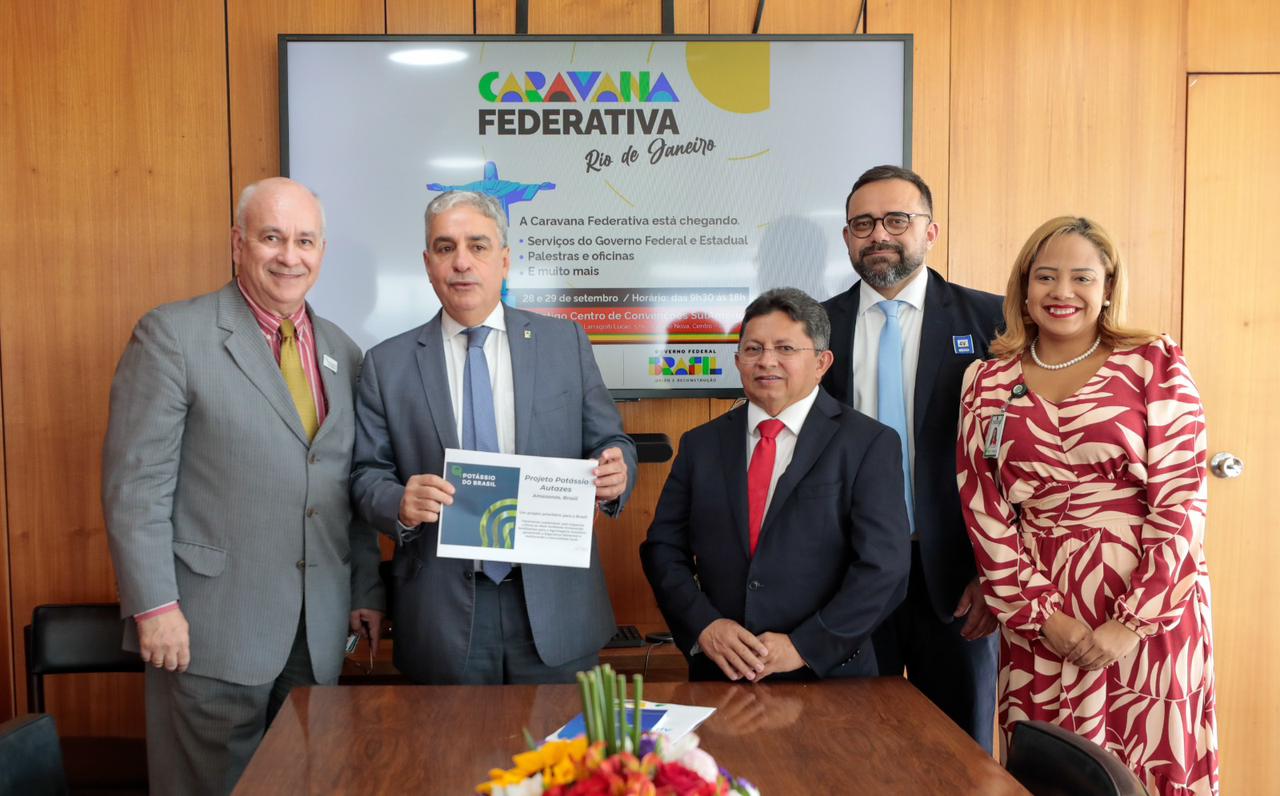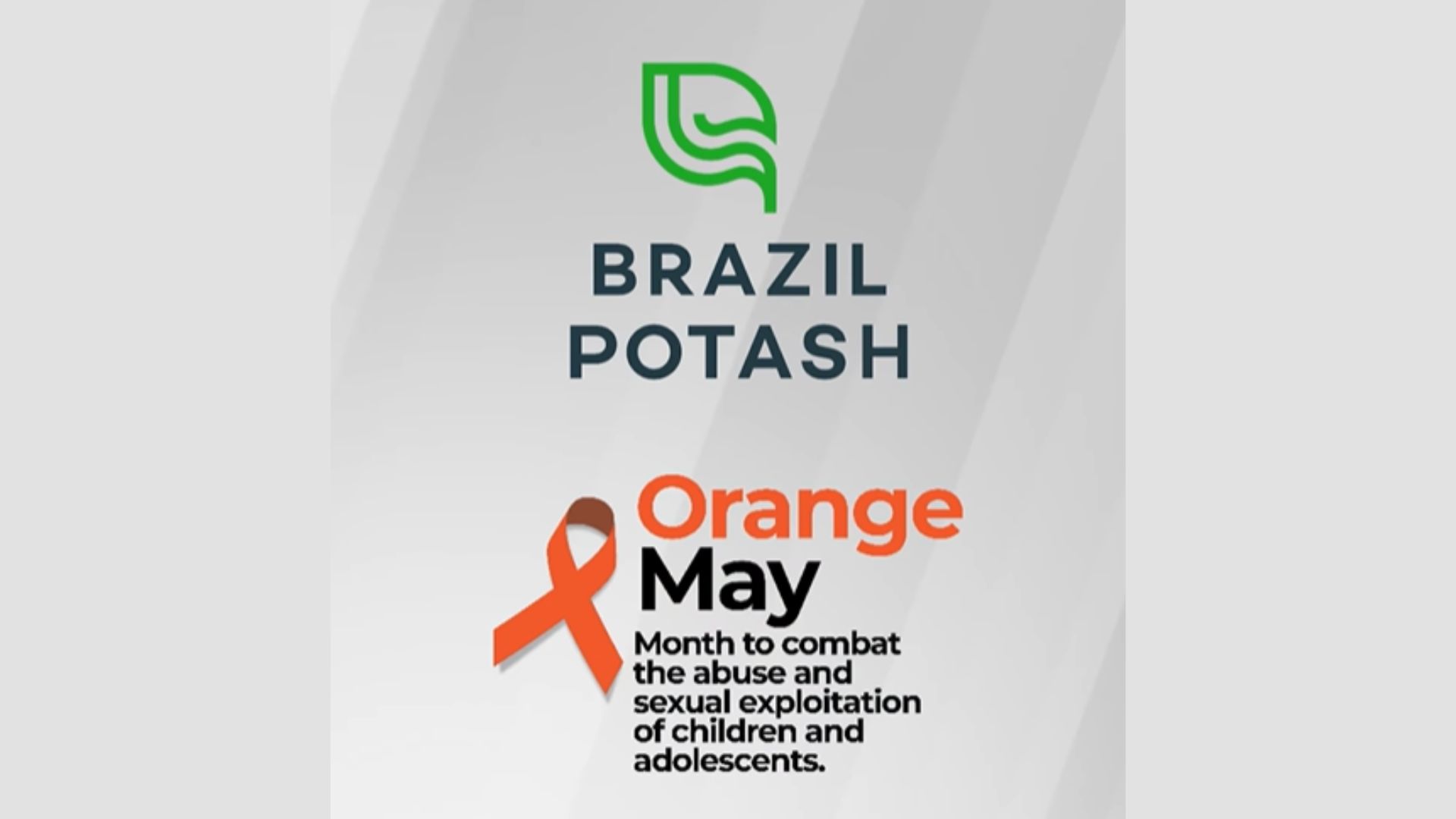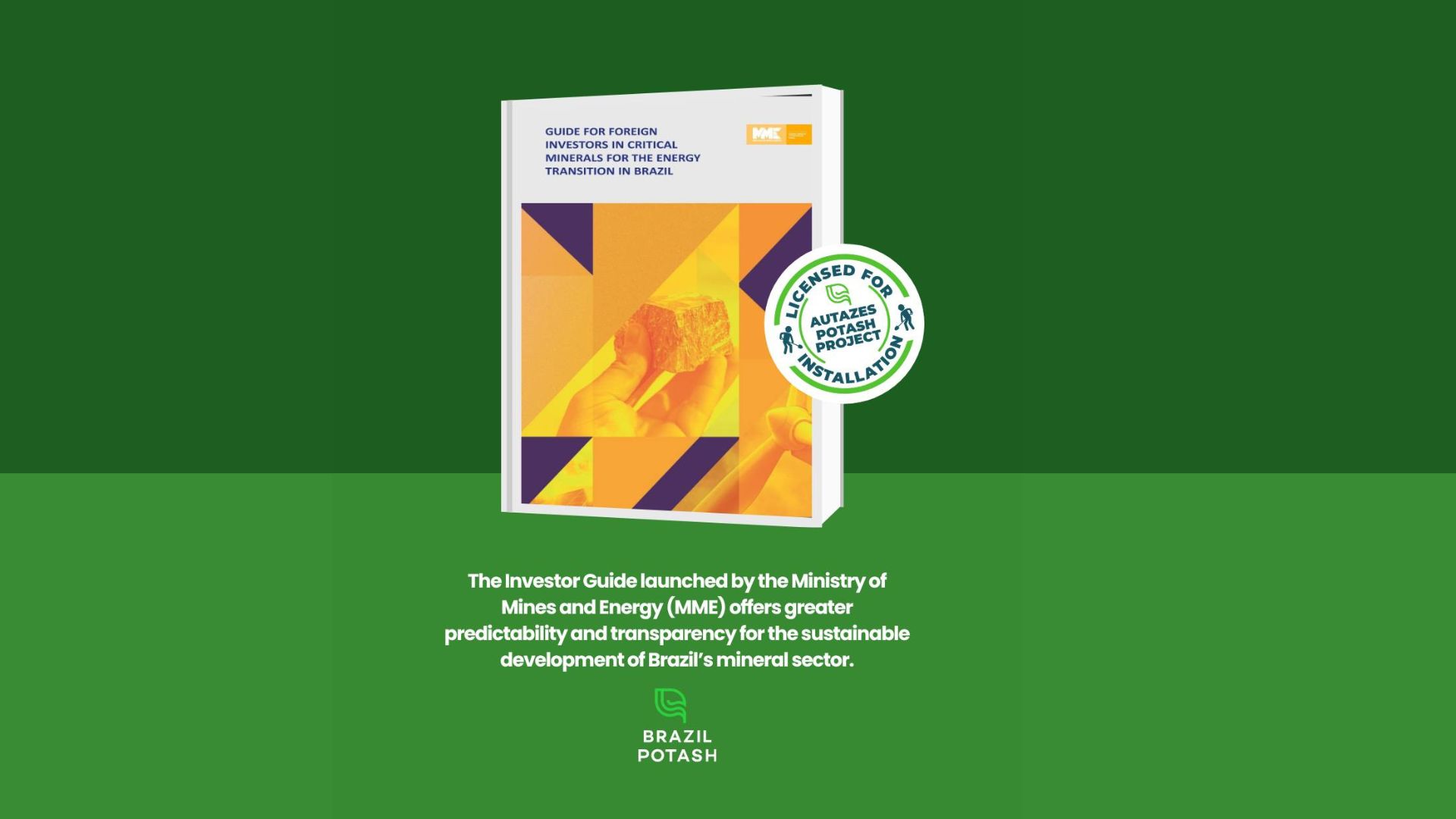Adriano Espeschit, President of Potássio do Brasil, is currently in Brasília this week. On Tuesday, September 19th, he presented the Autazes Potash Project to ministers and authorities of the Federal Government. This project will play a pivotal role in reducing Brazil’s imports of potash fertilizer and in achieving national self-sufficiency in fertilizer production.
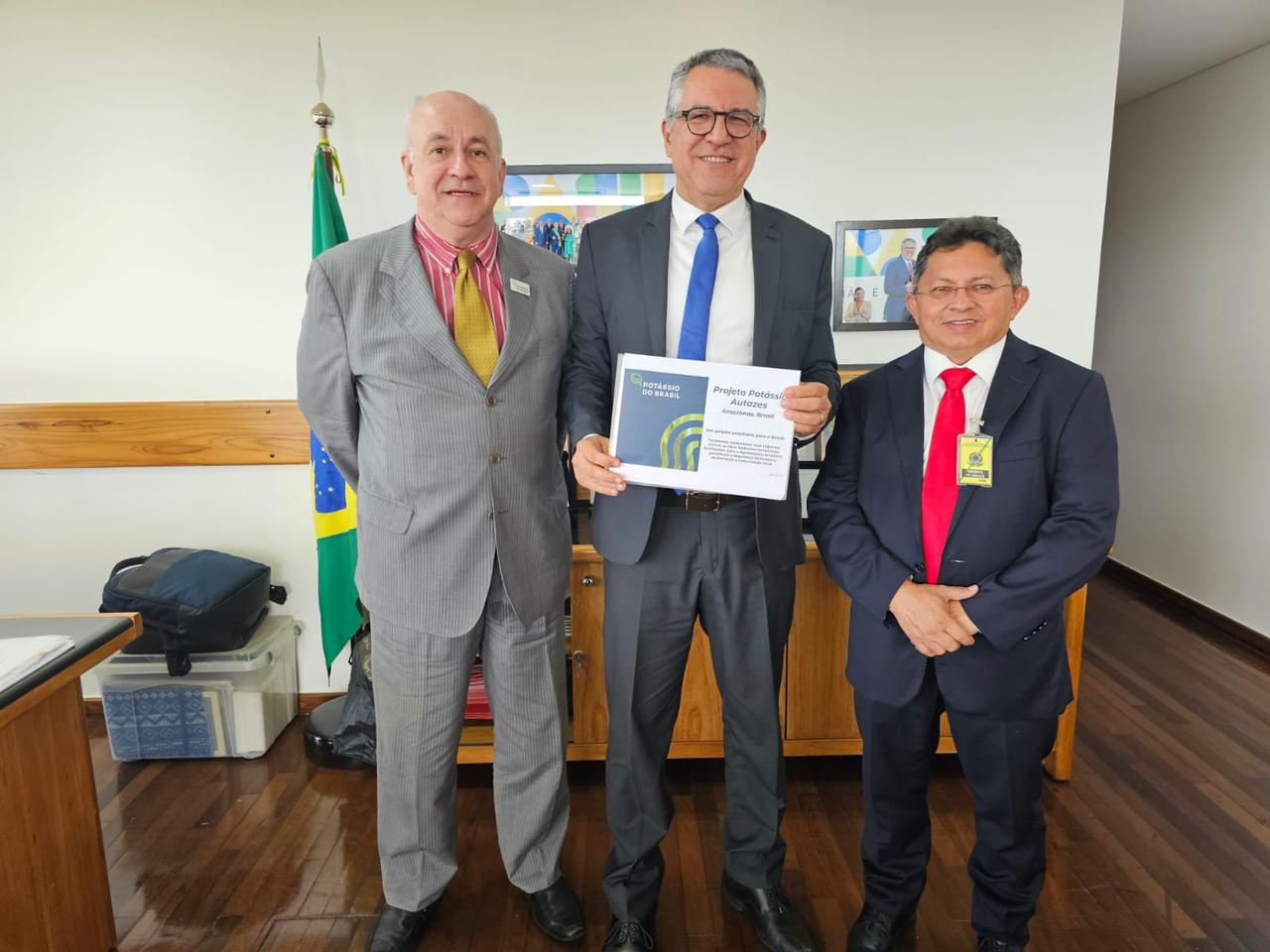
Photo: President of Potássio do Brasil, Adriano Espeschit, alongside the Minister of Institutional Relations, Alexandre Padilha, and State Deputy, Sinésio Campos (PT/AM), in Brasília.
The agenda commenced with a meeting with André Luiz Ceciliano, Special Secretary for Federative Affairs at the Ministry of Institutional Relations, followed by a visit to the Planalto Palace to meet with Alexandre Padilha, Minister of Institutional Relations. Accompanying the President of Potássio do Brasil’s delegation were Sinésio Campos, State Deputy from Amazonas (PT/AM), and Ronney Peixoto, Secretary of State for Mining, Gas, and Energy in Amazonas, who has already announced that the newly established secretariat is actively working on a State Mining Plan.
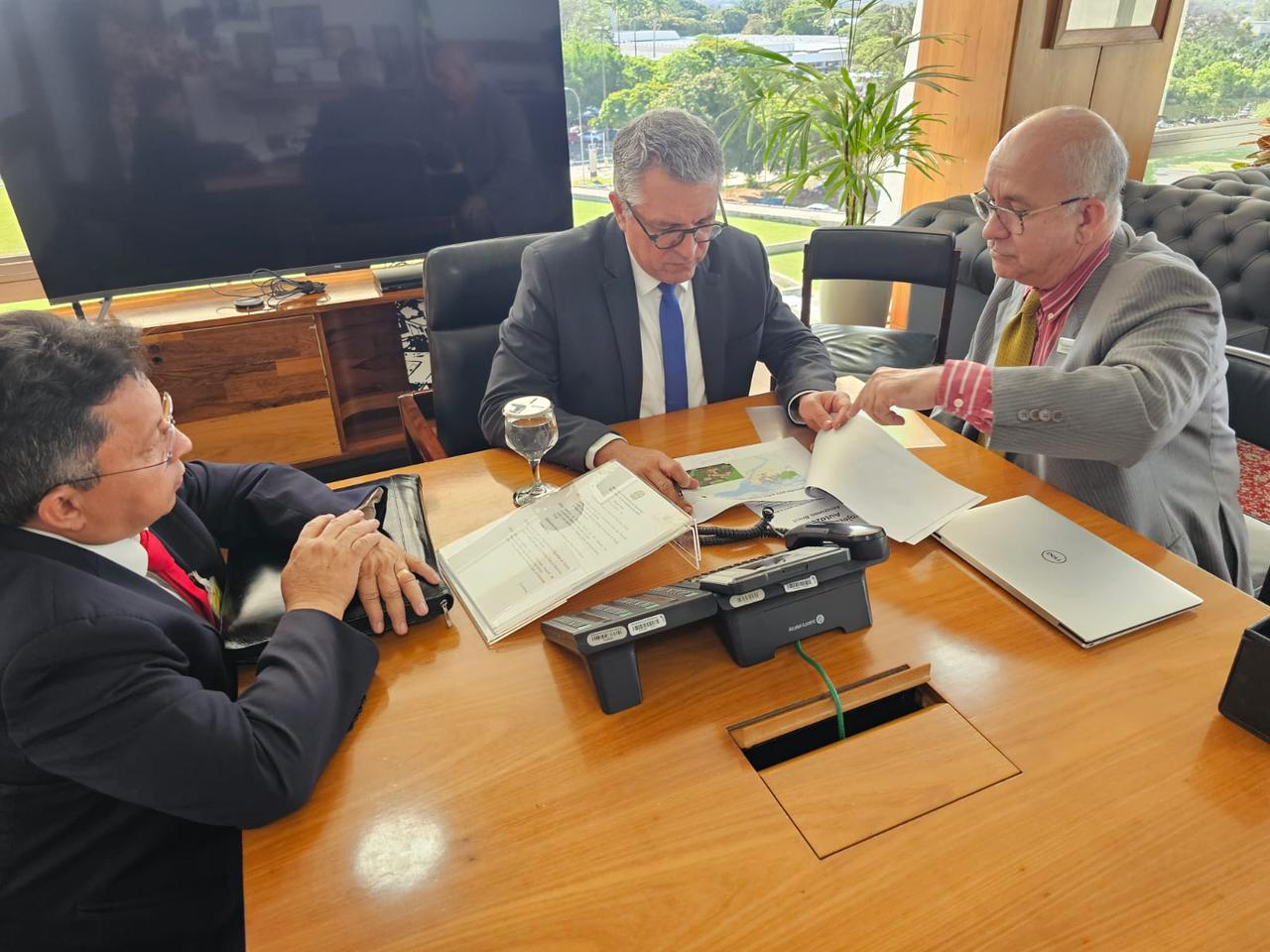
Photo: President of Potássio do Brasil, Adriano Espeschit, alongside the Minister of Institutional Relations, Alexandre Padilha, and State Deputy, Sinésio Campos (PT/AM), in Brasília.
The delegation also made a formal presentation to the Ministry of Mines and Energy. The President of Potássio do Brasil will remain in Brasília this week for further meetings with other key stakeholders.
The Autazes Potash Project will be implemented using engineering and technology processes that prioritize sustainability throughout the project. It will produce Potassium Chloride, a vital fertilizer for Brazilian agribusiness, in the municipality of Autazes (AM), just 112 km from Manaus.
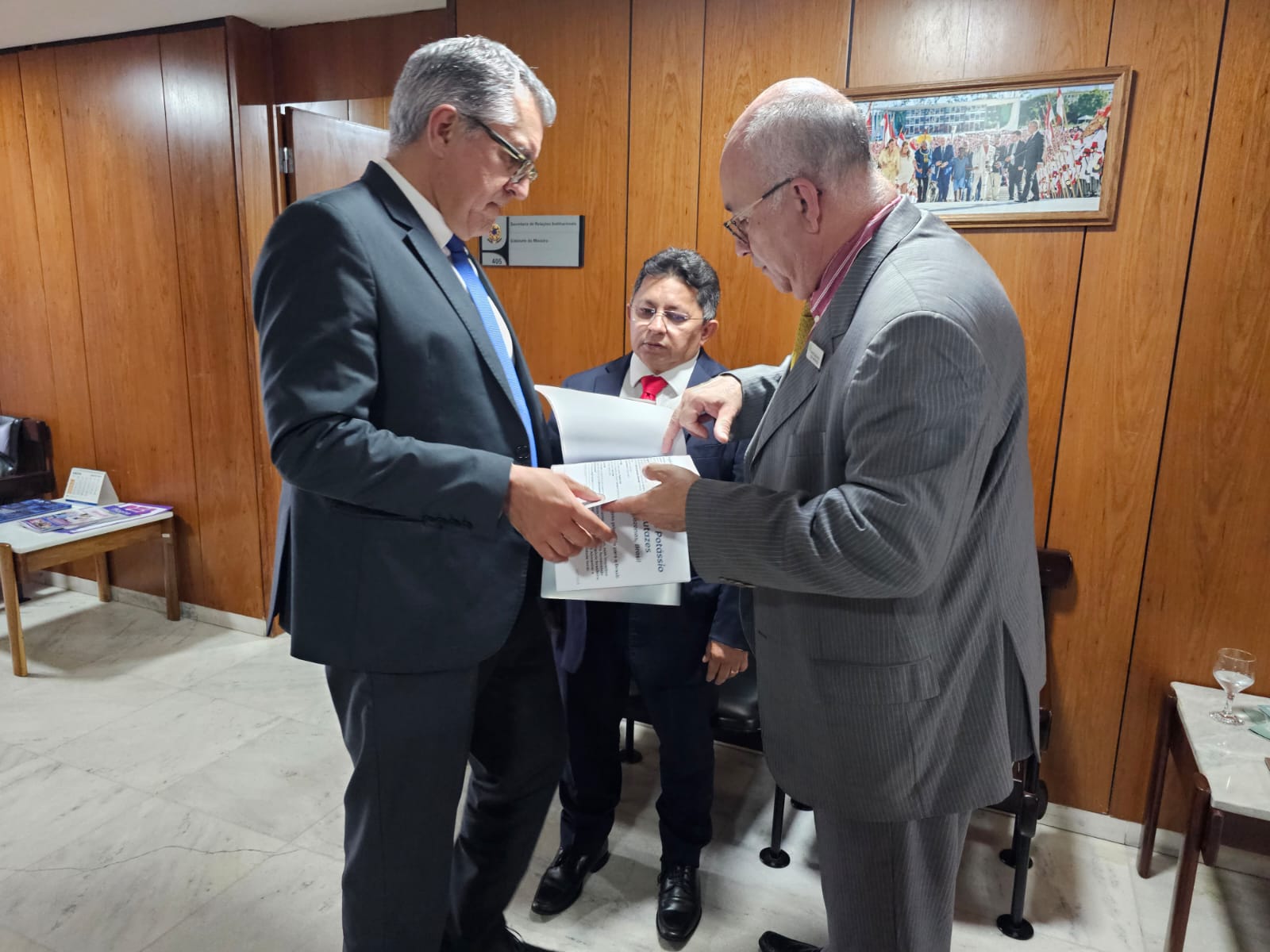
Photo: President of Potássio do Brasil, Adriano Espeschit, alongside the Minister of Institutional Relations, Alexandre Padilha, and State Deputy, Sinésio Campos (PT/AM), in Brasília.
The project will utilize an extraction method for Sylvinite, a rock composed of halite (Sodium Chloride, commonly known as table salt) and Sylvite (Potassium Chloride), which will not harm the surface soil or the environment. The entire extraction operation will be conducted using the chamber and pillar method.
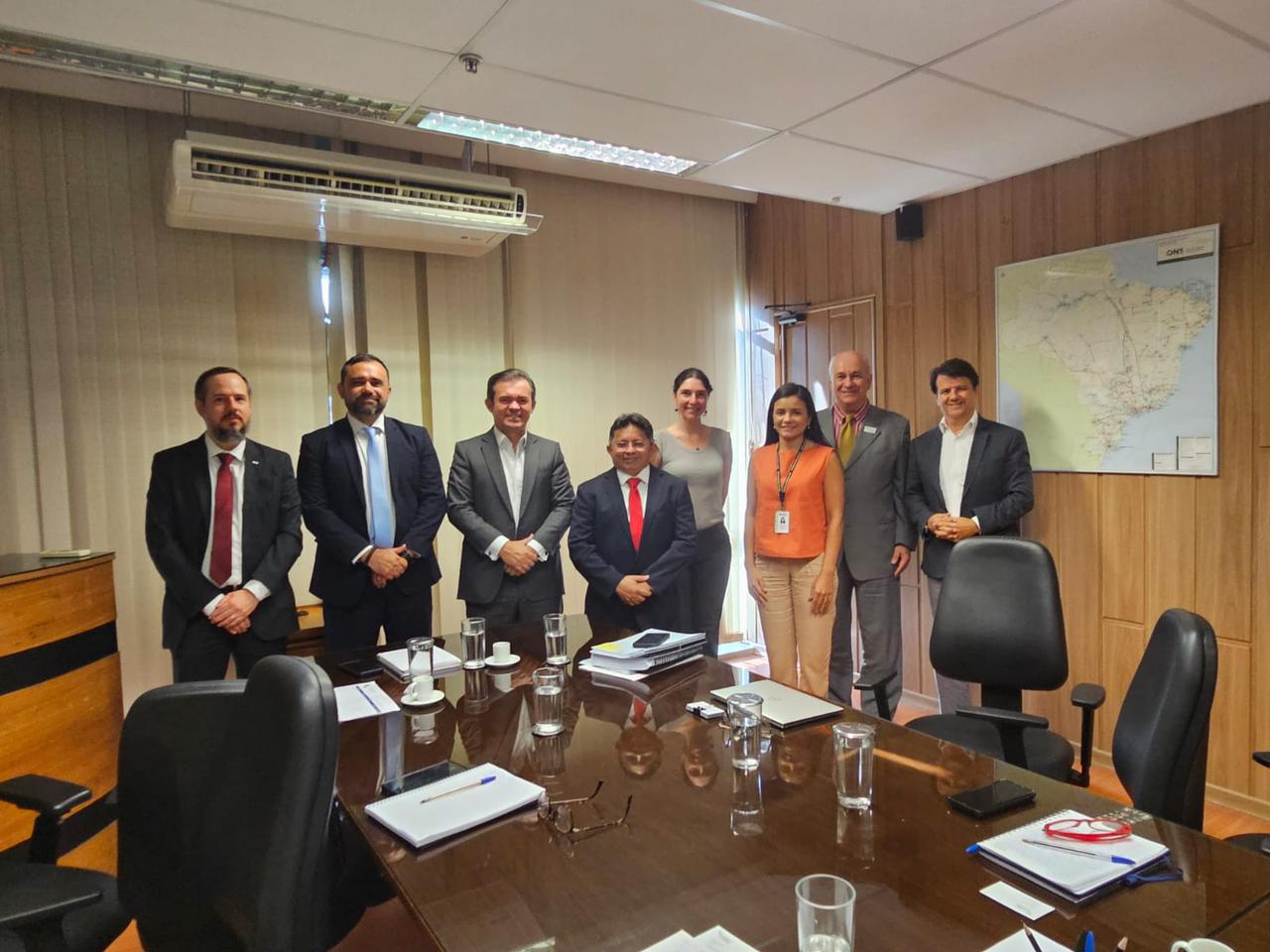
Photo: Formal presentation to the team of the Ministry of Mines and Energy.
Earlier this year, President Adriano Espeschit presented the project to Carlos Fávaro, Minister of Agriculture and Livestock; Alexandre Silveira, Minister of Mines and Energy; and Geraldo Alckmin, Vice President of the Republic and Minister of Development, Industry, Commerce, and Services (MDIC).
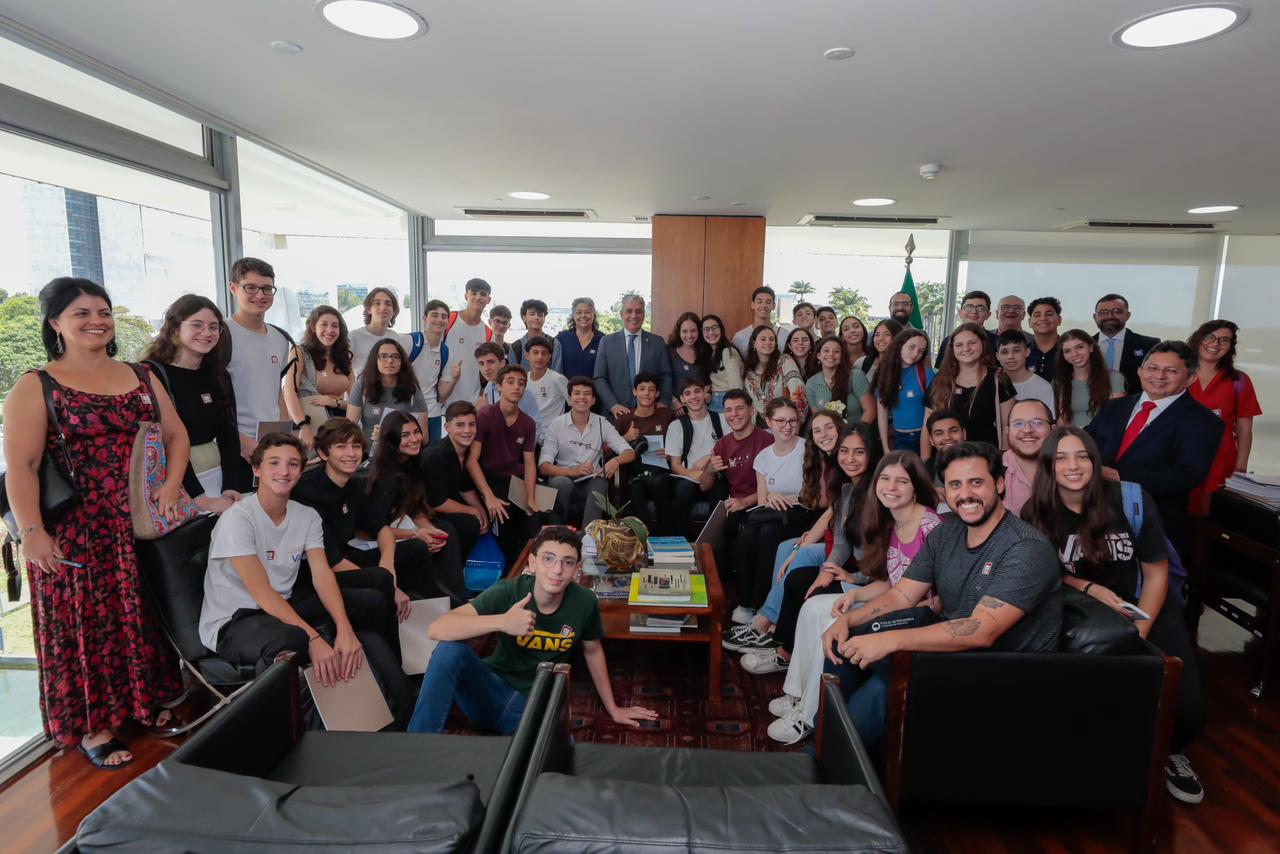
Photo: President of Potássio do Brasil, Adriano Espeschit, with State Deputy, Sinésio Campos (PT/AM), and students at the Ministry of Mines and Energy in Brasília.
Cover Photo: President of Potássio do Brasil, Adriano Espeschit, alongside the Special Secretary for Federative Affairs of the Ministry of Institutional Relations, André Ceciliano, State Deputy (PT/AM), Sinésio Campos, and the Secretary of State for Mining, Gas, and Energy of Amazonas, Ronney Peixoto.
Content Produced by Potássio do Brasil




